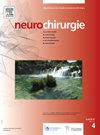Understanding the role of induction, intensions and extensions in pragmatic clinical research and practice
IF 1.5
4区 医学
Q4 CLINICAL NEUROLOGY
引用次数: 0
Abstract
Background
Pragmatic clinical research methods are poorly understood, but essential to practice outcome-based medical or surgical care. Pragmatic research aims to verify the connections between medical knowledge and the reality of practice. Its methods can be understood by reviewing the problems of induction, as well as the related linguistic and mathematical notions of intensions and extensions.
Methods
We briefly review the source of problems with using inductive methods to gain knowledge, and the relationships between language, mathematics and reality. We discuss linguistic 'sense’ and ‘reference’, and the set-theory terms ‘intensions’ and ‘extensions’, which define the relationship between individuals and whichever pertinent collection these individuals comprise. Both concepts are essential to understand pragmatic medical research and evidence-based practice.
Results
Pragmatic clinical research can be explained in terms of testing (in reality) the repeatability of various inductive referential and inferential steps used in clinical practice - from reliability, diagnostic accuracy, and prognostic studies to pragmatic trials. All pragmatic studies aim to verify the relationship between the extensions of the notions of symptoms, diagnoses, prognoses, treatments, and outcomes. The concepts of intensions and extensions also serve to understand ‘statistical significance’ in analyzing trial results, as well as problems related to eligibility criteria and subgroup analyses. The results of clinical studies can be generalized to the extent that they have been tested in numerous and widely different individuals.
Conclusion
The notions of sense and reference, and of intensions and extensions, help explain the role pragmatic clinical research methods can play in optimizing care.
了解归纳、意图和延伸在实用临床研究和实践中的作用。
背景:务实的临床研究方法鲜为人知,但却对基于结果的医疗或外科护理实践至关重要。实用性研究旨在验证医学知识与实际操作之间的联系。通过回顾归纳问题以及与之相关的语言和数学概念--意图和外延--可以理解其方法:我们简要回顾了使用归纳法获取知识的问题根源,以及语言、数学和现实之间的关系。我们将讨论语言学中的 "意义 "和 "参照",以及集合论中的 "意图 "和 "外延",它们定义了个体与这些个体组成的相关集合之间的关系。这两个概念对于理解实用医学研究和循证实践至关重要:从可靠性、诊断准确性和预后研究到实用性试验,实用性临床研究都可以用(在现实中)测试临床实践中使用的各种归纳参考和推论步骤的可重复性来解释。所有实用性研究都旨在验证症状、诊断、预后、治疗和结果等概念的外延之间的关系。意图和外延的概念也有助于理解分析试验结果时的 "统计意义",以及与资格标准和亚组分析相关的问题。临床研究的结果可以推广,因为这些结果已经在众多不同的个体中进行了测试:意义与参照、意图与延伸的概念有助于解释务实的临床研究方法在优化护理方面可以发挥的作用。
本文章由计算机程序翻译,如有差异,请以英文原文为准。
求助全文
约1分钟内获得全文
求助全文
来源期刊

Neurochirurgie
医学-临床神经学
CiteScore
2.70
自引率
6.20%
发文量
100
审稿时长
29 days
期刊介绍:
Neurochirurgie publishes articles on treatment, teaching and research, neurosurgery training and the professional aspects of our discipline, and also the history and progress of neurosurgery. It focuses on pathologies of the head, spine and central and peripheral nervous systems and their vascularization. All aspects of the specialty are dealt with: trauma, tumor, degenerative disease, infection, vascular pathology, and radiosurgery, and pediatrics. Transversal studies are also welcome: neuroanatomy, neurophysiology, neurology, neuropediatrics, psychiatry, neuropsychology, physical medicine and neurologic rehabilitation, neuro-anesthesia, neurologic intensive care, neuroradiology, functional exploration, neuropathology, neuro-ophthalmology, otoneurology, maxillofacial surgery, neuro-endocrinology and spine surgery. Technical and methodological aspects are also taken onboard: diagnostic and therapeutic techniques, methods for assessing results, epidemiology, surgical, interventional and radiological techniques, simulations and pathophysiological hypotheses, and educational tools. The editorial board may refuse submissions that fail to meet the journal''s aims and scope; such studies will not be peer-reviewed, and the editor in chief will promptly inform the corresponding author, so as not to delay submission to a more suitable journal.
With a view to attracting an international audience of both readers and writers, Neurochirurgie especially welcomes articles in English, and gives priority to original studies. Other kinds of article - reviews, case reports, technical notes and meta-analyses - are equally published.
Every year, a special edition is dedicated to the topic selected by the French Society of Neurosurgery for its annual report.
 求助内容:
求助内容: 应助结果提醒方式:
应助结果提醒方式:


